Jinji Lake
Jinji Lake is located in the northeast of the old urban area of Suzhou City, Jiangsu Province, and in the middle of Suzhou Industrial Park. It is adjacent to Dushu Lake in the south. Its central location is 31 18', 120 42', and its water area is 7.4 square kilometers.
Jinji Lake is a tributary of Taihu Lake. It has more than 10 inlets and outlets. The water of the North Nalou River is supplied by Xiangmantang and Humantang in the west. The water from Jinji Lake mainly flows into Wusong River through the Xietang River, so it belongs to the Wusong River system. Jinji Lake has music fountain, water Ferris wheel, Li Gongdi, Taohua Island, Jinji Lake Bridge waterfall and other attractions.
On July 2, 2012, Jinji Lake was awarded the National AAAAA Tourist Scenic Spot by the National Tourism Administration, and became the only scenic spot of the same level with the characteristics of business tourism in China.
Orion of the Name
In the spring and Autumn period,
The daughter of Wu Wangfuchai, Qiongji, lost her father's love after Goujian paid tribute to Sashi. Fucha and Xishi are in Gusutai, Lingyan Mountain, Suzhou City. They are entertained and ignore government affairs. Jonggie found Goujian had ulterior motives, and made several warnings to her father about Goujian. Instead of believing it, he listened to Xishi's words and drove Jongji to a desert island in the unknown lake east of the city of Suzhou to "ponder over the lake".
Later, when the Vietnamese Army soldiers came to Su City, in order to save their lives, Fu Chai prepared to give his daughter as a "gift" to Goujian to plead for peace. When Jongie heard the news, she jumped into the lake and killed herself. Legend has it that people call this lake "Qiongji Lake" in memory of Jongji. The pronunciation of "Qiongji" and "Jinji" in Wu dialect is similar, so "Qiongji Lake" is gradually called "Jinji Lake".
Evolution of development
In the forty-eighth year of Emperor Kangxi of the Qing Dynasty (1707), Changzhou County set up the "Stone Stone Stone Stone of the Yellow Stone Bridge on the West Bank of Jinji Lake" and the inscription "Jinjing Lake" appeared in the inscription.
Twenty-six years (1761) of the Qianlong reign of the Qing Dynasty, the printed and published Annals of Yuanhe County contains: "Jinjinglu, a Jinjing Lake, a Jinji Lake." "Lu" refers to the lake formed after flooding. The name of Jinji Lake may come from the false sound of "Jinjing".
In the 16th year of Guangxu (1890), Li Chaoqiong of Yuanhe Zhixian wrote in his diary about Jinji Lake and the Jinji Lake embankment, later known as "Li Gongdi", which was freely interoperable between "Jinjing Lake" and "Jinji Lake". This shows that in the late Qing Dynasty, the name of Jinji Lake has not been determined. It also shows that Jinji Lake has not been a lake for a long time.
In the 1990s, with the development and construction of Suzhou Industrial Park, Jinji Lake began to change from fish pond to resort. In May 1997, Jinji Lake was formally incorporated into the management of Suzhou Industrial Park, and Jinji Lake began to develop and manage as a whole.
In 1998, Jinji Lake Environmental Comprehensive Management Project was officially launched. Suzhou Industrial Park commissioned an American company to compile the landscape planning of the lake area.
In March 1999, the first landscape project of Jinji Lake, Lakeside Avenue, was started.
In 2003, the silt removal project of Jinji Lake was officially started.
On March 28, 2004, Jinji Lake Bridge was completed and opened to traffic.
On March 11, 2005, the Jinji Lake dredging project was completed and the dam was opened for water storage.
In December 2006, Li Gongdi on Jinji Lake opened the street after renovation.
On the evening of May 31, 2014, Jinji Lake Old Music Fountain held its last curtain call, which was watched by tens of thousands of people.
On the evening of February 1, 2018, after nearly four years of renovation, Jinji Lake Music Fountain reopened.
geographical environment
Location context
Jinji Lake is located in the north latitude of 31 18', east longitude of 120 42'. It is located in the northeast of the old urban area of Suzhou and the regional center of the Suzhou Industrial Park. The south is opposite to Dushu Lake across the Li Gongdi. Most of the coastline along the lake is in the Lou Ju (inclined pond) border area. The northeast part of the lake is in the Weiting (cross-pond) border area, with a water area of 7.4 square meters. Km.
climatic conditions
Jinji Lake is a subtropical humid monsoon climate zone, warm and rainy, clear monsoon, four distinct seasons, long winter and summer, short spring and autumn, the annual average temperature is 15.7 C, the annual average precipitation is 1063 mm. The most frequent wind direction is southeast wind (summer), followed by northwest wind (winter).
hydrographic features
Jinji Lake is a tributary of Taihu Lake. Its bottom is relatively flat with an average water depth of about 1.8 meters. It has a deep trench from north to South with the deepest depth up to 5 meters. Ships sail along the trench and form a route. There are deep pools in the East and west of the lake, and the pools in the West are up to 5 meters deep.
Jinji Lake has more than 10 inlets and outlets, and the water of the Lou River in Beinalou is supplied by Xiangmantang and Zhenmentang in the west, with a volume of 0.113 billion cubic meters. The outlet mainly flows into Wusong River through the Xietang River, so it belongs to the Wusong River system. The lake is rich in water and grass, clear in water and fertility, rich in fish and shrimp. It was once one of the top ten freshwater lakes for fish farming in China.
In December 2009, Li Gongdi was named "Commercial Street with Chinese Characteristics" by the Working Committee of China's Pedestrian Commercial Street. In 2010, he was named "Top Ten Most Beautiful Night Scenic Spots in Suzhou" and "China's Most Innovative Commercial Real Estate Project" in April 2011.
On July 2, 2012, Jinji Lake Scenic Spot was officially assessed as "National 5A Scenic Spot" by the National Tourism Administration's Quality Grading Committee.
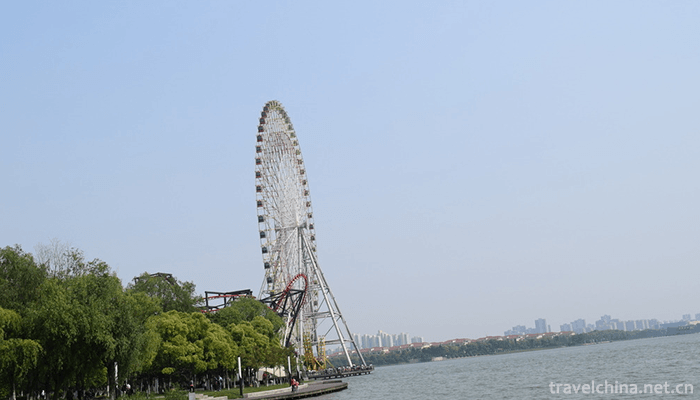
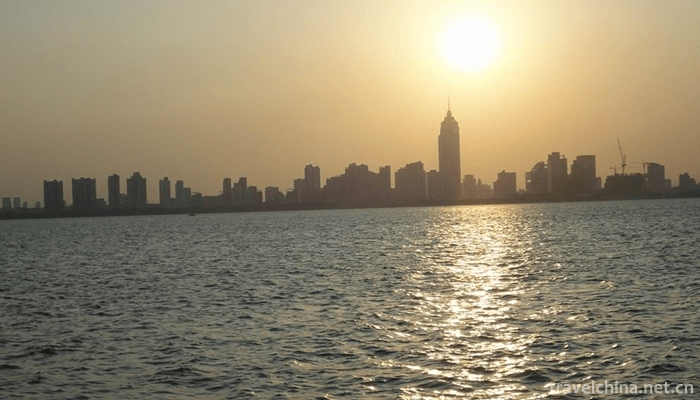
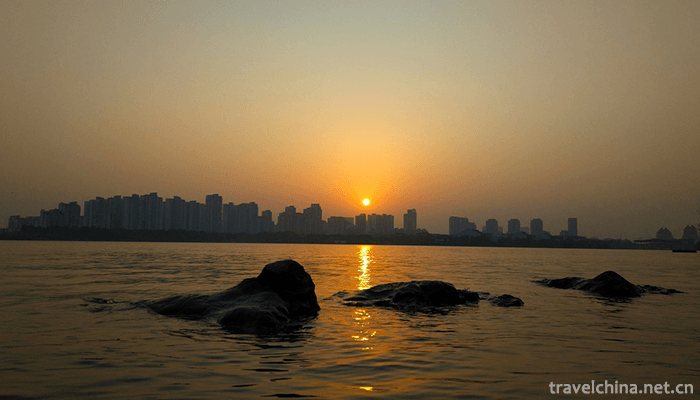
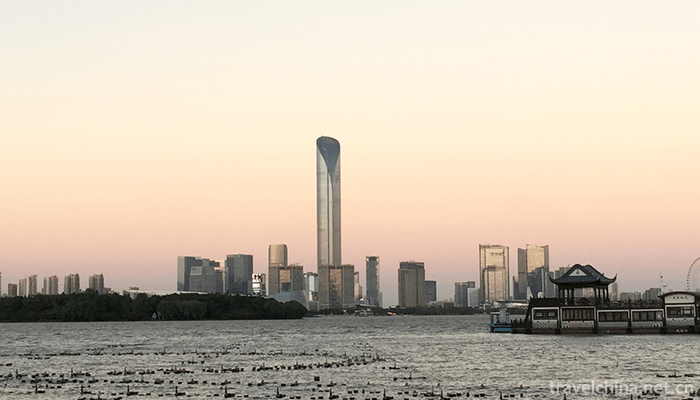
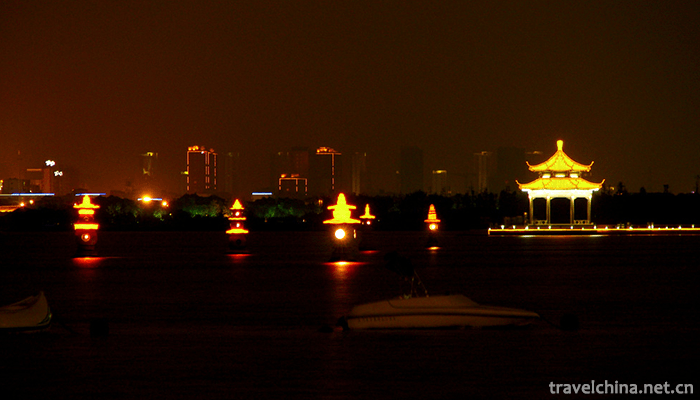
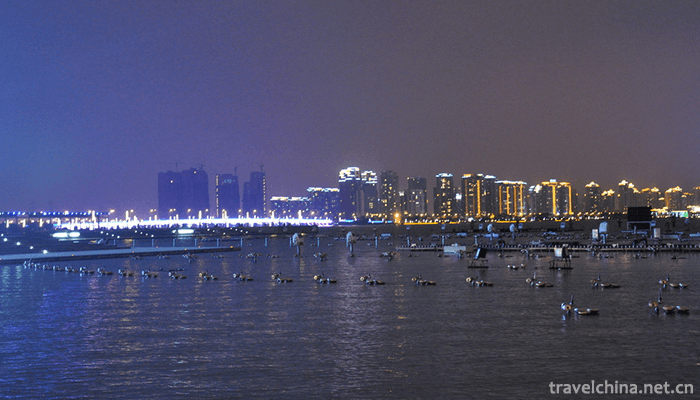
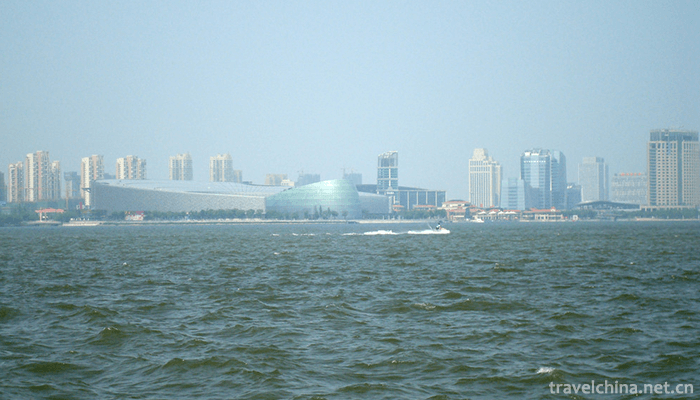
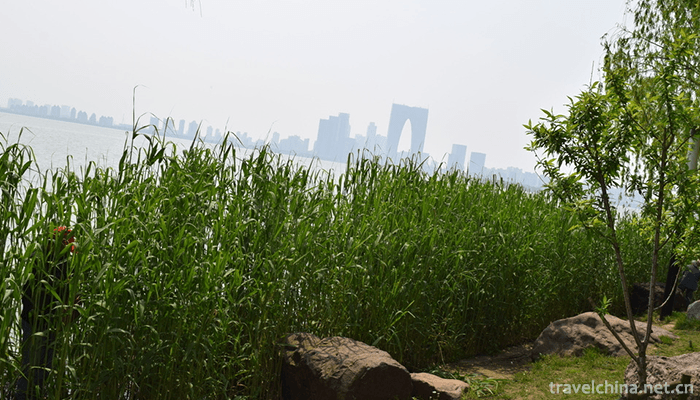
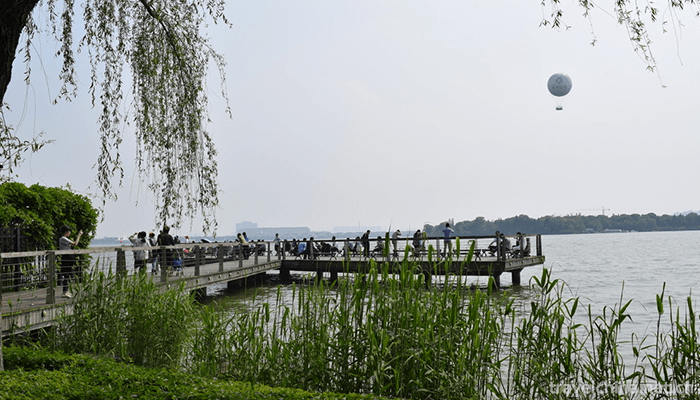
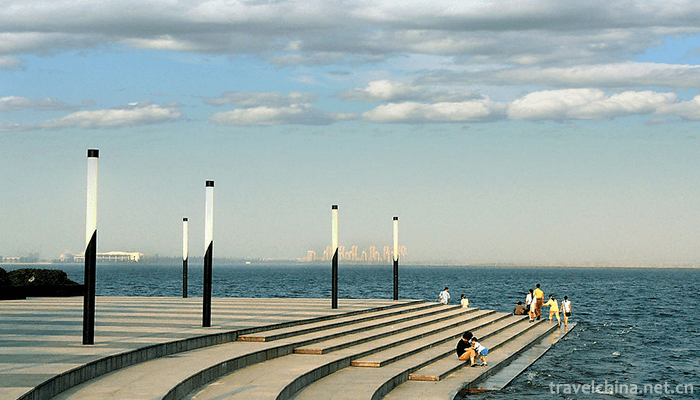
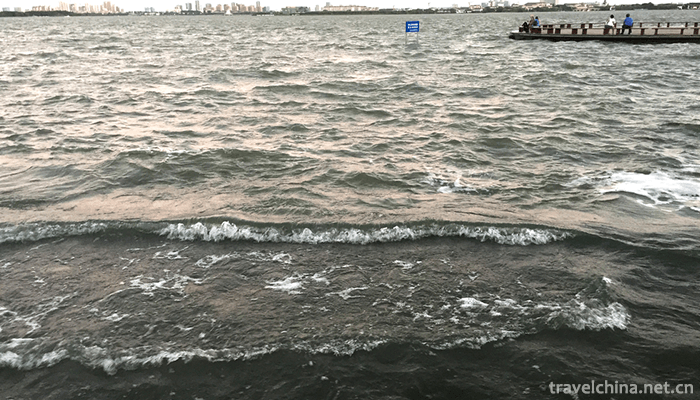
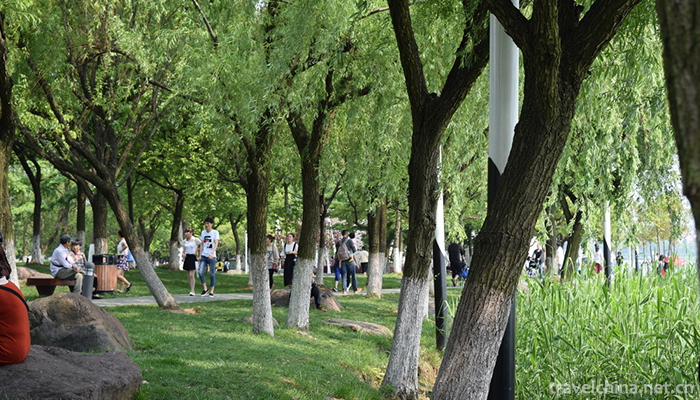
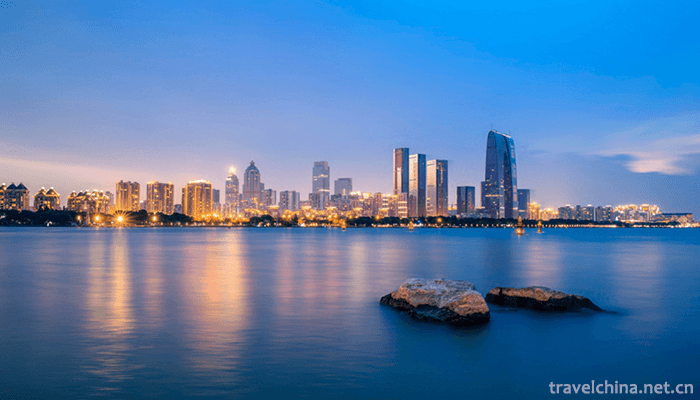
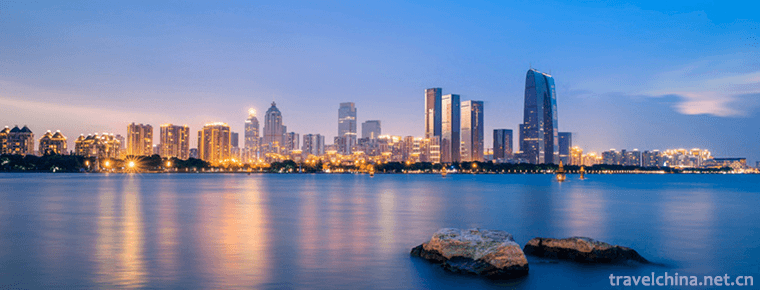
-
2.Zhouzhuang Town
Zhouzhuang Ancient Town is a preferred site for world cultural heritage and the first batch of national 5A tourist attractions. It is located in the southeast of Suzhou City and at the junction of Kun
Time 2018-12-06 -
3.Guan Lin Scenic Area
Guanlin, a national key cultural relic protection unit, National AAAA tourist attraction, is the first place for the burial of Shu generals Guanyu in the Three Kingdoms period. The former is an ancest
Time 2018-12-24 -
4.Nangong Scenic Spot
Located in Wangzou Town, Fengtai District, southwestern suburb of Beijing, Nangong Village, the village where the scenic spot is located, enjoys the reputation of "China's first geothermal villag
Time 2018-12-27 -
5.Thrush valley ecological tourist area
Thrushcross Valley is a natural eco-tourism area, located in Yaoshan Town, Lushan County, Henan Province, and at the northern foot of Yaoshan Scenic Area. It is a national AAAA-level tourist attractio
Time 2019-01-17 -
6.Hangzhou Reviews
Hangzhou Ci Commentary, commonly known as Xiaoshu, is the traditional art of rap and singing in Hangzhou, Zhejiang Province. It is a kind of folk art that tells stories
Time 2019-05-02 -
7.Music of Lantian Puhua Water Club
Lantian Puhua Water Concert Music is a kind of folk blowing music which has been circulated in Puhua Town of Lantian County, Shaanxi Province for more than 1000 years
Time 2019-05-11 -
8.Forging Skill of Longquan Sword
Longquan sword forging technology, the traditional arts and crafts of Longquan County, Zhejiang Province, is one of the national intangible cultural heritage.
Time 2019-05-14 -
9.Changsha Tanci
Changsha Tanci is a traditional opera in Hunan Province. It is popular in Changsha, Yiyang, Xiangtan, Zhuzhou and Liuyang of Hunan Xiangjiang River and Zishui River basin. Changsha Tanci derives from
Time 2019-07-25 -
10.Han Feizi
Han Feizi is a collection of works of famous thinkers and Legalists Han Fei during the Warring States period. Han Feizi was compiled by posterity after Han Fei's death. According to hanshuyiwenzhi &qu
Time 2019-09-07 -
11.Wannan Medical College
Wannan Medical College is located in Wuhu, a famous historical city known as "the great port of the Yangtze River and the backbone of Anhui". It is close to the vast Yangtze River and gather
Time 2019-11-19 -
12.Geographical environment of Deyang
Deyang City is located in the northeast edge of Chengdu Plain, with geographical coordinates of 30 ° 31 ′ - 31 ° 42 ′ N and 103 ° 45 ′ - 105 ° 15 ′ E. Deyang borders Fucheng District of Mianyang City in the northeast, Santai County of Mianyang City in the East
Time 2020-12-14